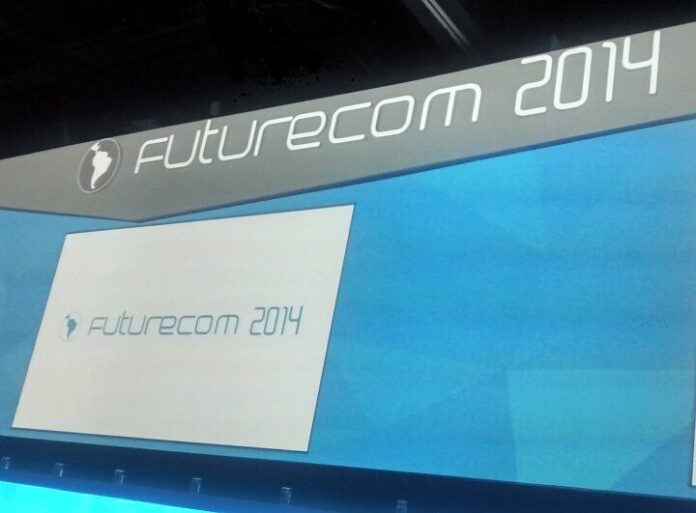SAO PAULO – No matter who becomes Brazil’s next president after the Oct. 26 runoff election, the agenda to universalize Internet broadband must move forward, according to Paulo Bernardo, Brazil’s minister of communications. Bernardo used his speech before a full audience at the opening session of Futurecom in São Paulo this week to talk about President Dilma Rousseff’s telecommunications achievements and point out what still needs to be done.
“Currently, Brazil has 105 million Internet users, and the greatest growth was in regions such as the north and northeast where there were few users,” he said. Bernardo highlighted programs such as popular broadband (called in Portuguese “banda larga popular”) that helped to increase penetration in areas that did not previously have Internet access.
The communications minister also emphasized that to cover the country’s diverse geography with Internet broadband, it’s necessary to combine different technologies such as 3G, 4G, satellite and optic fiber, as well as radio. He recognized that the antenna bill should have been passed, and the delay in enacting this law hurt the effort to reach a greater area with broadband.
“We almost got the antenna law passed that would have reduced the bureaucracy around installation. Our challenge is to promote the universalization of the Internet. It has to be available to people as much as water services and electricity. It’s necessary to move this agenda forward,” Bernardo said.
In addition to the 700 MHz spectrum band auction this year, carriers that bought 2.5 GHz licenses still have obligations to meet, and some of them will help expand Internet broadband throughout the country. For example, by 2017, all cities with more than 30,000 inhabitants should be covered by LTE. Rural areas are also targeted to be connected next year.
This is the 16th Futurecom event, and about 350 companies and 15,300 people expected to attend this year’s event in São Paulo.

